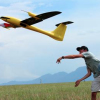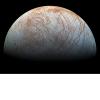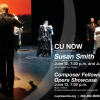Academics
- <p>The moon is engulfed in a permanent but lopsided dust cloud that increases in density when annual events like the Geminids spew shooting stars, according to a new study led by University of Colorado Boulder.</p>
 <p>University of Colorado Boulder Provost Russell L. Moore today announced that Lorrie Shepard, dean of the School of Education, will retire effective May 31, 2016, and that a national search has been launched to find her replacement.</p>
<p>University of Colorado Boulder Provost Russell L. Moore today announced that Lorrie Shepard, dean of the School of Education, will retire effective May 31, 2016, and that a national search has been launched to find her replacement.</p> <p>The economic impact of the Energy Department’s National Renewable Energy Laboratory (NREL) was $872.3 million nationwide in fiscal year 2014, according to a study by CU-Boulder's Leeds School of Business.</p>
<p>The economic impact of the Energy Department’s National Renewable Energy Laboratory (NREL) was $872.3 million nationwide in fiscal year 2014, according to a study by CU-Boulder's Leeds School of Business.</p> <p>A consortium led by the University of Colorado Boulder has received permission from the Federal Aviation Administration to start flying drones over parts of Texas and Oklahoma this spring in the heart of Tornado Alley to conduct weather research.</p>
<p>A consortium led by the University of Colorado Boulder has received permission from the Federal Aviation Administration to start flying drones over parts of Texas and Oklahoma this spring in the heart of Tornado Alley to conduct weather research.</p> <p>A University of Colorado Boulder instrument has been selected to fly on a NASA mission to Jupiter’s icy moon, Europa, which is believed to harbor a subsurface ocean that may provide conditions suitable for life.</p>
<p>A University of Colorado Boulder instrument has been selected to fly on a NASA mission to Jupiter’s icy moon, Europa, which is believed to harbor a subsurface ocean that may provide conditions suitable for life.</p> <p>It’s not every day you get to work with a Pulitzer Prize-winning librettist as a college student. It’s even less often that you share the same alma mater. When the sixth season of the CU New Opera Workshop, or CU NOW, kicks off this month, one of the opera professionals mentoring composition students knows Boulder well. Mark Campbell, a 1975 graduate of the Department of Theatre and Dance, is coming back to campus for the first time in 40 years.</p>
<p>It’s not every day you get to work with a Pulitzer Prize-winning librettist as a college student. It’s even less often that you share the same alma mater. When the sixth season of the CU New Opera Workshop, or CU NOW, kicks off this month, one of the opera professionals mentoring composition students knows Boulder well. Mark Campbell, a 1975 graduate of the Department of Theatre and Dance, is coming back to campus for the first time in 40 years.</p>- <p>A novel compound developed by a team led by the University of Colorado Boulder may be therapeutic in suppressing misguided inflammatory responses by a set of immune cells known as microglia to perceived damage to the brain and nervous system.</p>
 <p>It’s graduation time for colleges and universities around the country and for the 5,927 CU-Boulder graduates likely to hit the job market there’s good news. That’s because the job market is healthy and strong across the board, says Jon Schlesinger from CU-Boulder’s Office of Career Services.</p>
<p>It’s graduation time for colleges and universities around the country and for the 5,927 CU-Boulder graduates likely to hit the job market there’s good news. That’s because the job market is healthy and strong across the board, says Jon Schlesinger from CU-Boulder’s Office of Career Services.</p> <p>About seven years ago, Rob Kemp had two encounters that changed his life.</p>
<p>About seven years ago, Rob Kemp had two encounters that changed his life.</p>
<p>The first was when a mentor at the university where he earned his bachelor’s degree pushed him to talk with a former CU-Boulder PhD student. Until then, Kemp hadn’t really considered going on to graduate school.</p> <p>A mission to study dynamic changes in the atmosphere of Mars over days and seasons led by the United Arab Emirates (UAE) involves the University of Colorado Boulder as the leading U.S. scientific-academic partner.</p>
<p>A mission to study dynamic changes in the atmosphere of Mars over days and seasons led by the United Arab Emirates (UAE) involves the University of Colorado Boulder as the leading U.S. scientific-academic partner.</p>


